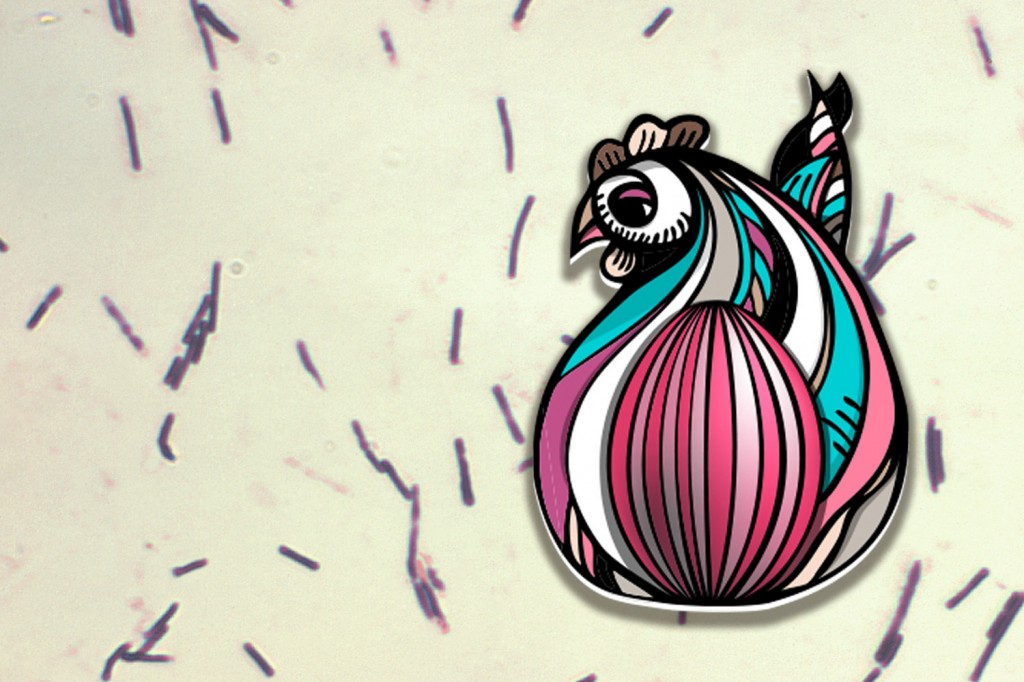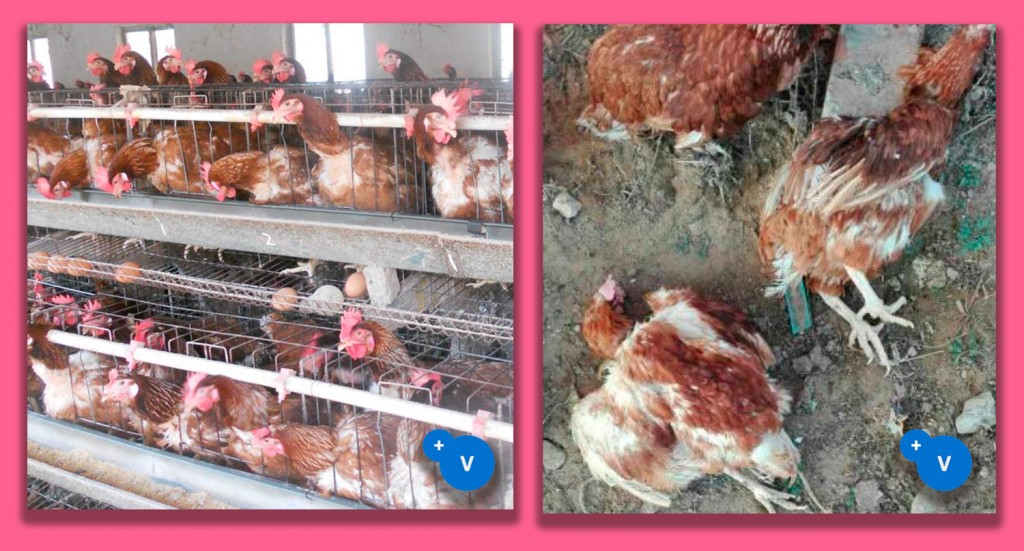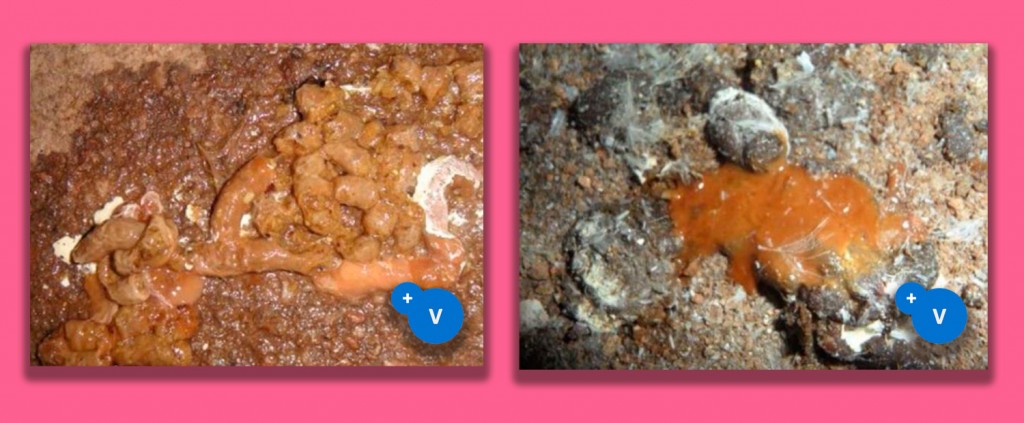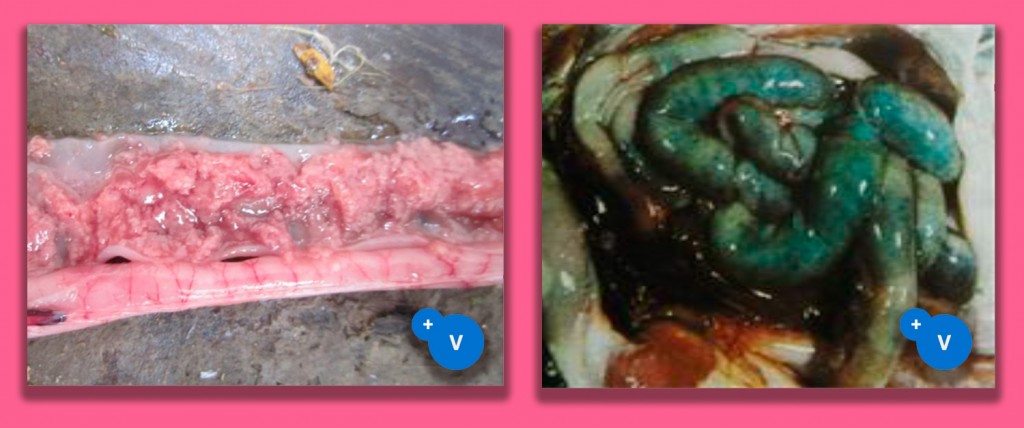01 Jul Focus on necrotic enteritis in commercial layers during hot weather

Necrotic enteritis is one of the most serious digestive diseases in laying hens
Necrotic enteritis, caused by Clostridium perfringens, has been reported worldwide. Main clinical signs are a sudden increase in mortality, depression and diarrhea.
Epidemiology
The disease can break out in hens of all ages, but it is most commonly found in pullets of 40-90 days of age and near the period of the beginning of egg laying or during the laying peak.
The presence of coccidia in intestine, feed changes and dysbacteriosis induce the outbreak of necrotic enteritis The disease can occur all the year round, but it is much more frequently found in periods of high temperatures and moisture.
Clinical signs
The sick birds show depression, ruffled feathers, closed eyes, lameness or paralysis and dark colored diarrhea. There are also problems of eggshell quality and a drop in laying rate.

Affected flocks show higher mortality, eggshell quality problems and a drop in laying rate. Dead animals are found every day in the farm, with signs of lameness, paralysis, dehydration, and watery, dark, feces.

Brownish watery diarrhea
Post-mortem lesions
- Small intestine (usually middle to distal) thickened and distended.
- Intestinal mucosa shows diphtheritic membrane.
- Intestinal contents may be dark brown with necrotic material.
- Reflux of bile-stained liquid in the crop if upper small intestine is affected.
- Affected birds tend to be dehydrated and to undergo rapid putrefaction.

Left, appearance of the small intestine, with bleeding, inflammation and mucosa showing a linear pattern, like the bark of a tree. Right, severe case with dark intestines, swelling and ballooning.
Diagnosis
A presumptive diagnosis can be made based on flock history and gross lesions. Confirmation is on the observation of abundant rods in smears from affected tissues and a good response to specific medication, usually in less than 48 hours.
Treatment and Prevention
Penicillins (e.g.phenoxymethyl penicillin, amoxycillin), in drinking water, or bacitracin in feed (e.g. 100 ppm) can be used to treat the disease.
It is often impossible to effectively use antibiotics since the disease progresses very fast and the toxins involved produce irreversible intestinal damage. It is most often easier to prevent necrotic enteritis rather than treat it.
There is another concern that is many of the effective antibiotics leave residues in eggs so there is a withdrawal period and eggs can not be sold during this interval.
Use of plant extracts for prevention of necrotic enteritis
Products based on plant extracts with microbiocide and prebiotic properties help to restore or maintain gut heath and the balance of intestinal flora, avoiding the proliferation of Clostridium perfringens. Administration should begin before the pullets are transferred to the laying farm and given during the production peak.
Charles Qiang YU, veterinarian, Technical Manager for Poultry
Pictures: Pathology pictures, by Charles Qiang Yu. Hen, found here. Clostridium, found here.
Products of choice
GrowthPlus© is added to feed to maintain and improve digestive health. It is formulated with synergistic ingredients:
- Bactericidal and fungicidal plant extracts, combined with organic acids for better effectiveness, that reduce the number of pathogenic microbes in the digestive system.
- Plant extracts with prebiotic effect, that promote the growth of beneficial bacteria in the gut.
- Immunostimulant and antioxidant plant extracts.
- Silicates with mycotoxin binding function.
It is especially useful in cases of gizzard diseases, necrotic enteritis, feed passage and other enteritis. It is also used as a natural growth promoter and to replace antibiotic growth promoters.
PlusProtect Digestive© is intended for digestive health in birds and rabbits of all ages. It is formulated with synergistic ingredients:
- Essential oils with bactericidal and fungicidal activity
- Plant extracts with prebiotic effect.
- Immunostimulant and antioxidant essential oils
PlusProtect Digestive© is useful to improve gut health in the following cases:
- Candidiasis in beak, crop and gizzard
- Bacterial infections in gizzard. In severe cases, it is better to give together with our PlusBind© line (mycotoxin binders)
- Bacterial infections in the intestines (necrotic enteritis; E.coli; Salmonella sp.)
- General digestive imbalances, such as feed passage.

Certain health statements may not be applicable in your region.

